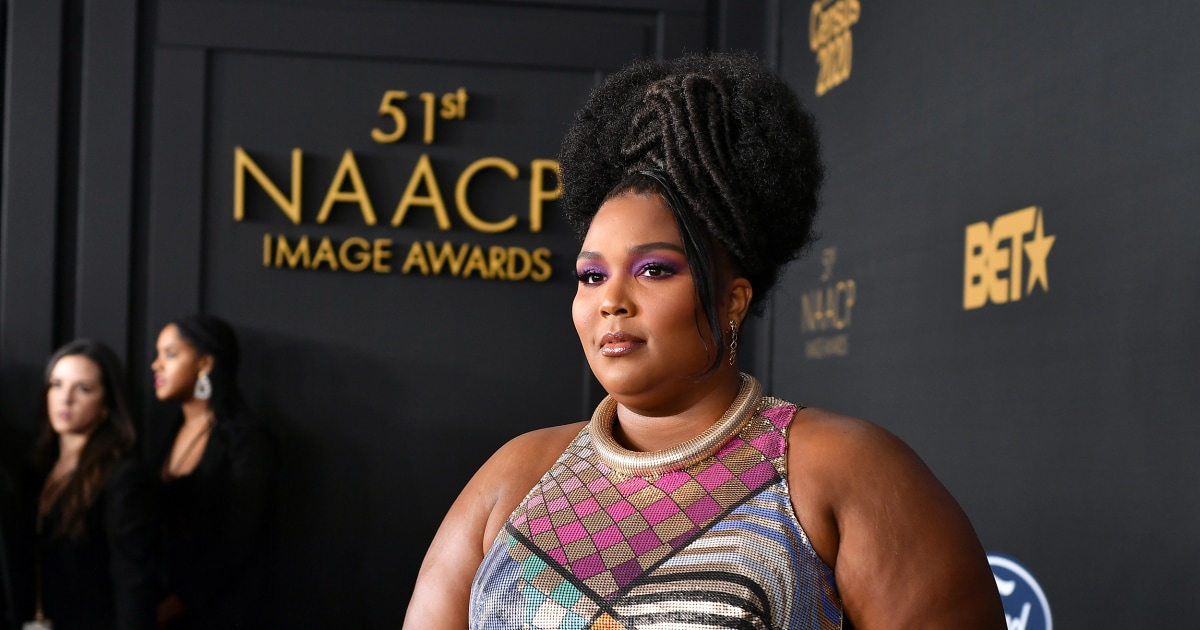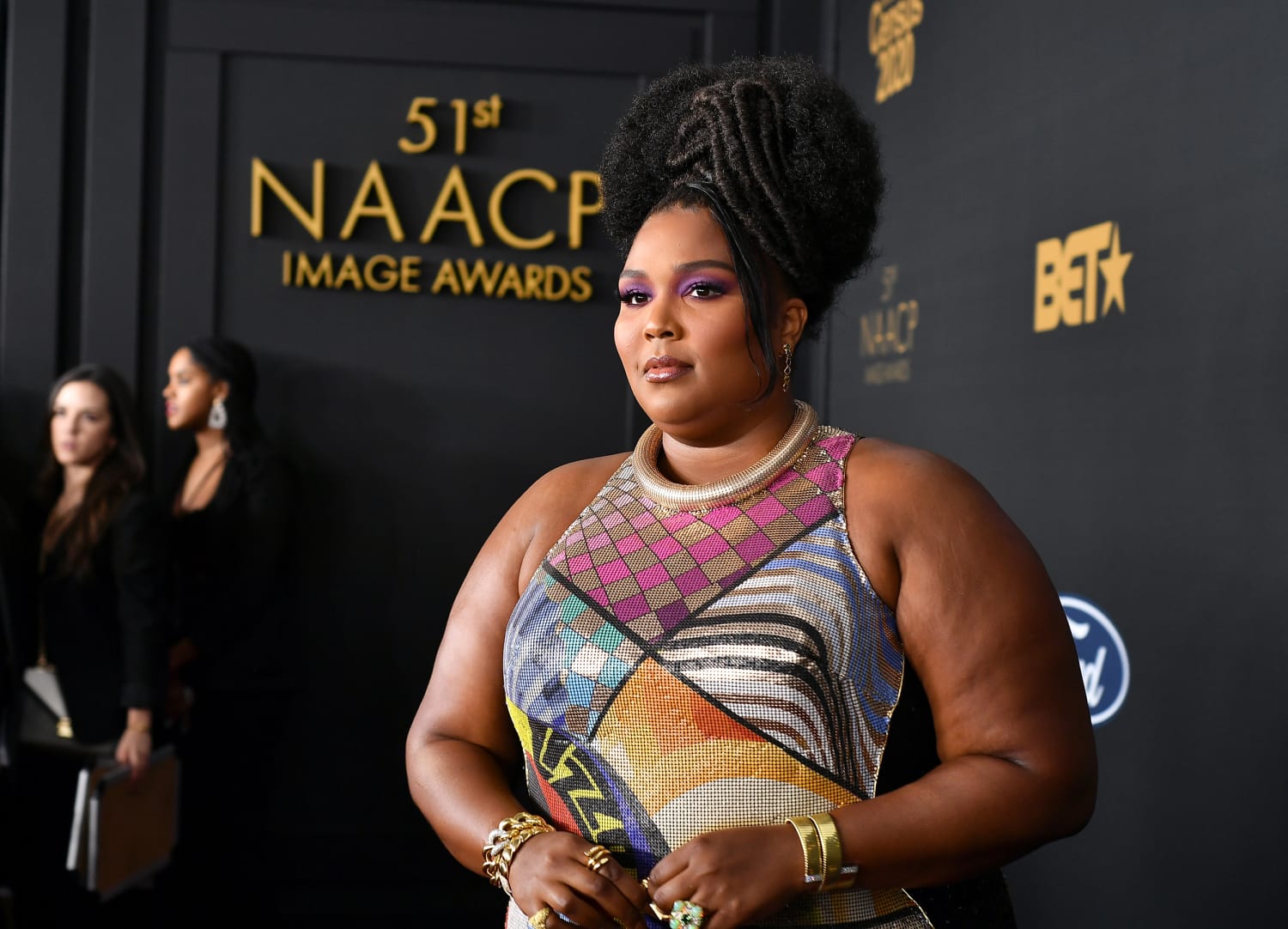
It isn’t easy for anyone to have a body on the internet — especially not a woman, and especially not a Black woman — without being subject to criticism for how they present it and present their feelings about it.
The pop star Lizzo has had a particularly rough run of it, despite or perhaps because of her sense of her own beauty and her clear vision that she is sexy — and that everyone else can be, too. From the criticisms of her twerking in a thong at a Lakers game a year ago, to her decision to quit Twitter a month later amid a brutal round of fat jokes aimed at her, to the personal trainer Jillian Michaels slamming her body positivity in an interview and claiming she was bound to get diabetes, Lizzo’s simple acceptance her body with grace and openness and treating it as normal has resulted in months, if not years, of vitriol from perfect strangers.
So it should perhaps not come as a total surprise to fans when Lizzo opted to share on her TikTok account that she was doing the 10-day smoothie “detoxification” regimen popularized by author J.J. Smith.
“It’s great to reset your stomach and reset things, especially if you deal with gastrointestinal issues like I do,” she said at the end of her second video.
People feel far too free to declare them the arbiters of what women should or should not do with bodies, including what they should eat.
Large swaths of the internet weren’t buying that the detox regimen was strictly for a “reset” after a month of drinking and spicy food, however, and excoriated the plus-size beauty for posting something that appeared to go against her long-standing position of body positivity and embracing your size at all sizes. Several people on Twitter and elsewhere referred to the video as “triggering,” in large part because the body positivity space has become a haven for some people aiming to leave their disordered eating behaviors and the larger diet culture behind even if they are not themselves overweight.
Lizzo acknowledged the criticisms and the underlying assumptions in a third video, saying, “I feel like as a big girl, people just expect if you are doing something for health, you’re doing it for a dramatic weight loss, and that is not the case.”
And, what she said at the end is right: “big girls” should “do whatever u want with your bodies.” People feel far too free to declare them the arbiters of what women — especially big women, and especially big Black women — should or should not do with bodies, including what they should eat. And anybody publicly passing judgment on one hyper-criticized big Black woman for what she chose to eat for 10 days should think about whether they are helping or hurting “body positivity” by contributing to the ongoing, nationwide policing of her body.
But there is another issue here besides Lizzo and her admittedly ever-growing relationship with her body and well being. The fact that she, like so many of us, bought into the myth of detoxification speaks volumes about its toxic seductiveness even to those actively resisting “diet” culture.
Sometimes, the best thing we can do for our bodies is to stop our harmful habits, rather than to find ways to accommodate continuing them.
The myth of detox rests on the idea — also prevalent in diet culture — that someone who has done their fair share of eating, drinking and being merry automatically needs to suffer for all that pleasure. Lizzo herself shared a version of this thinking in her third video: “In reality, November stressed me the f— out. I drank a lot, I ate a lot of spicy things, and things that f—– my stomach up. I wanted to reverse it and get back to where I was.”
But, of course, the (expensive) detox protocols aren’t what “cures” us of the sluggishness and other symptoms that result from a month or more of poor eating habits. (If nothing else, watching the sheer volume of water Lizzo drank as a part of her “detox” ought to be evidence that the better hydration she cited as a result of it could be regularly achieved by simply drinking more water.)
Sometimes, the best thing we can do for our bodies is to stop our harmful habits, rather than to find ways to accommodate continuing them.
Frequent consumption of alcohol dehydrates the human body, negatively impacts digestion and also negatively affects your hair and skin and nails — affecting the “glow” we often refer to in skin care. Eliminating regular alcohol consumption allows the body to pick up its regular digestion speed, giving your body more of its ability to properly process nutrients and, by extension, makes you feel more energetic than before.
We all have conflicting understandings of what it means to treat our bodies well, or how to repair whatever damage might’ve been done by less-than-ideal habits.
Eliminating frequent overeating also has the ability to dramatically improve one’s energy levels as well. While the definition of “overeating” will vastly differ for each person and their respective activity levels, most overeating tends to happen in cases where people are consuming large quantities of high carb, low protein, low fat and low fiber delicacies, which tend to be the easiest to overeat and cause sugar highs and then sugar crashes. Those unstable energy levels leave us reaching for the foods we know will bring us lots of energy quickly — more sweets.
When we snap out of that cycle, we have steadier energy levels and feel a greater sense of focus.
Many commercial detoxification routines (including Lizzo’s) further tell us that we need to juice or blend raw foods in order to properly absorb them, but this, too, is false. While there’s nothing wrong with enjoying the occasional juice or smoothie, the human body contains all the tools we need to be able to digest everything we need — and, in fact, the human body needs the fiber that is destroyed in the blending process to regulate blood sugar levels and to support digestion.
As for the idea that raw foods are inherently more nutritious than cooked ones, that, too, is a half-truth: Some nutrients are more accessible to the human body in raw form, while others are more easily digested when cooked.
This is why all humans need a diverse diet that gives us plenty of each.
We all have conflicting understandings of what it means to treat our bodies well, or how to repair whatever damage might’ve been done by a period of less-than-ideal habits. But the reality is that there is nothing better than a slow crawl toward healthful, mindful and deliberate actions that support our health. No one needs a restrictive “detox” to be healthy or beautiful.
Lizzo’s own parting words on this matter, in a fourth and more meditative video, were clear: “Your body is perfectly yours, even if it ain’t perfect to anybody else. If you only knew the complexities your body possesses you would be so proud of it.” Hopefully we can all keep that in mind — especially as we are thinking about resolutions for January.
Source: | This article originally belongs to Nbcnews.com









